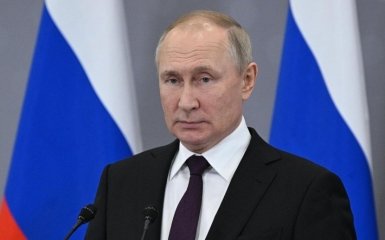Russia is advancing on several fronts. At the same time, Russian President Vladimir Putin began purges in the Ministry of Defence and is actively continuing them.
Putin resolutely began to purge the Russian Ministry of Defence
The New York Times journalists outlined why the Russian president is carrying out these purges. It noted that recurring outcry over incompetence and corruption at the top of the Russian military is hampering military efforts from the start of a full-scale invasion in February 2022.
When Russian forces lost ground around the Ukrainian capital, the need for change was exposed. It only increased a few months later when the occupiers were driven out of the Kharkiv region. After mercenary leader Yevgeny Prigozhin sent his men to Moscow to complain about the deep rot and ineptitude of the Russian military at the top, Putin seemed compelled to respond.
Putin has not taken any public steps that could be seen as validating the criticism. He did not change generals and left the leadership in place until recently.
With the crisis on the battlefield seemingly over and Prigozhin dead, the Russian leader decided to act, changing defence ministers for the first time in more than a decade. In addition, arrests began among ministry officials.
These steps initiated the largest reconstruction of the Russian Ministry of Defence. They also confirmed Putin's desire to avoid major, immediate changes in the midst of a crisis and instead act at a less visible time of his own choosing.
We must understand that Putin is a stubborn and not very flexible person. He believes that reacting too quickly and quickly to a changing situation is a sign of weakness, said Abbas Gallyamov, a former speechwriter for Putin who now lives outside Russia.
Changes were needed from the first days
Russian troops are achieving some successes in Ukraine, but the leadership of the Kremlin is optimistic.
They likely see the situation in the force as stable enough to punish some in the military leadership for its past failures, said Michael Kofman, an expert on the Russian military.
The demand for changes at the top of the Russian army was restrained from the first days of the invasion. Then stories spread about Russian soldiers going to war without proper food and equipment.
The anger ended with the suppression of Prigozhin's munition. He suggested corruption at the highest level to the Russian ranks and the public, criticising Shoigu and General Gerasimov. His failed mutiny showed that the problems in the Ministry of Defence under Shoigu's leadership were severe and that the population was hungry for renewal.
Vladimir Putin now appears to be opposing the same officials that Prigozhin opposed.
Who was purged?
The first harbinger of change was the arrest of Timur Ivanov, Shoigu's protégé and deputy defence minister responsible for military construction projects. The Russian authorities accused him of receiving a large bribe, but he denied wrongdoing.
The Kremlin then announced that it had replaced Shoigu and selected Belousov, one of its longtime economic advisers, as the new defence minister. Shoigu has been moved to run Russia's Security Council, where he will still have access to the president but will not have direct control over money.
Belousov has no military experience. But he can boast a relatively clean image and a long government career untainted by major corruption scandals.
If you want to win a war, corruption on a larger scale that affects outcomes on the battlefield, at least in theory, is not something you want, said Maria Engqvist, deputy head of Russia and Eurasia at Swedish Defence Research.
At the same time, she called corruption in Russia a "particularity" and not a mistake. She said corruption is a tool for gaining influence, but it can also be used against you at any moment, depending on whether you say the wrong thing at the wrong time or make the wrong decision at the wrong time.
In May, the arrests of MOD officials continued: Four more high-ranking generals and MOD officials were detained on corruption charges. Dmytry Peskov, a Kremlin spokesman, denied that the arrests were a "campaign."
Promises of more significant financial and social benefits for ordinary soldiers accompany accusations of corruption against high-ranking MOD officials of the Ministry of Defense. This is an apparent attempt to improve morale and appease populist critics.




